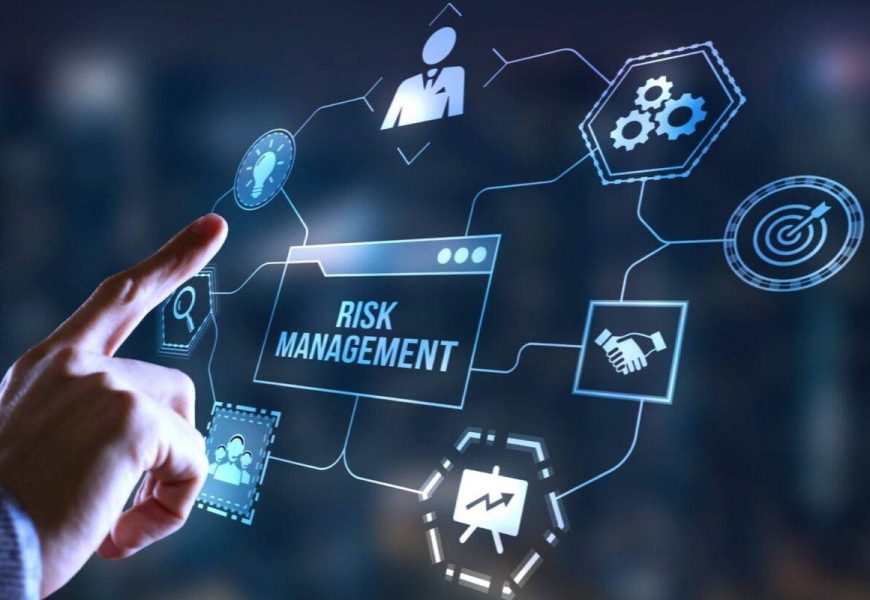If you are a business owner, then managing risks is an important step while managing daily operations. Do you know AI computers can do this easily? These computers can help you manage the data carefully and prevent any potential risks before they disrupt your business.
In addition, AI helps you manage a large amount of data without any human intervention. This also ensures that all the data is saved in a centralised location, allowing you to transmit the data easily with no security issues. As a result, using AI devices can provide you security and ease in your business operations.
According to Invest India, AI computers can easily detect online threats and prevent data loss, allowing businesses to run smoothly.
Let’s look at the role of the AI device in business risk management.
Market Risk Prediction
One of the best roles AI computers play in managing business operations is to predict the current market condition. As market conditions change rapidly, AI can help you know what your competitors are actually doing and using for their enhancements. This ensures that you can know all the details, allowing you to stand at the first in the market. As a result, this prevents you from the risk of being back and not updated in the market.
You might be thinking, How does AI predict market trends? So, this is done by AI by analyzing data from past sales to social media trends.
Let’s say you have a business that produces eco-friendly products, so AI will let you know which product is trendy in the current market. With this, you can update your stock and present some new stock in the market. This allows you to beat your competitors and gain much customer attention.
Automated Risk Assessments
Another main role AI gadgets play in managing business workloads is to automate the risk assessment. This is done by the AI manually, and it ensures that all the files are saved and can be used. But if this is done by humans or traditionally, it can create many problems and some data can be missed. AI automates this process, offering constant monitoring and real-time risk assessments.
With this, businesses no longer need to rely on outdated assessments but can instead trust AI to provide accurate, up-to-the-minute reports. This helps reduce errors and saves time, enabling businesses to focus on strategic decisions.
- Automated Risk Assessments: AI systems automate the risk assessment process, eliminating the need for manual evaluations.
- Minimised Human Errors: Unlike traditional methods, AI reduces the chance of missing crucial data during assessments.
- Real-Time Monitoring: AI provides constant monitoring and real-time updates on risks.
- Up-to-date Reporting: Businesses benefit from accurate, up-to-the-minute reports instead of relying on outdated assessments.
Fraud Detection and Prevention
Businesses, especially in finance, are constantly at risk of fraudulent activity. Fraudulent transactions can go unnoticed for a long time, leading to significant losses. AI-powered systems identify suspicious behaviours by analysing customer patterns and flagging anything unusual.
For instance, AI systems used by banks can instantly detect fraudulent activity when a customer’s card is used in an unexpected location or manner, automatically freezing the transaction to prevent further damage. This proactive approach minimises fraud losses and prevents reputational harm.
Improved Decision-Making
Decision-making is a critical aspect of risk management, yet many businesses face decision fatigue and data overload. AI helps by processing large volumes of data to provide insights that would be impossible for humans to extract manually. Consider a retail business that has to decide which products to promote.
Times of India states that using AI computers cna help business owners and employees make the best decisions, allowing them to save time and effort.
AI can analyse past consumer behaviour, current trends, and even social media mentions, providing the company with a clear direction. AI doesn’t just offer numbers—it gives actionable insights that inform decisions, helping businesses avoid making costly mistakes.
Financial Risk Analysis
Financial risk is ever-present, and traditional methods of financial risk assessment may not always be accurate. AI helps solve this problem by analysing a range of financial factors, from market trends to company-specific performance, to predict future financial risks.
For example, in the stock market, AI systems can predict market volatility based on factors such as economic reports, trading volumes, and geopolitical events. By using AI, businesses can make informed financial decisions, set accurate budgets, and mitigate risks before they become a major concern.
Supply Chain Risk Management
A major pain point for many businesses is the risk of supply chain disruptions. These can stem from natural disasters, geopolitical changes or even transportation failures. AI computers analyse data from different sources, including weather reports, global trade news, and historical data, to predict supply chain issues before they happen.
For example, AI can predict a potential delay in shipping from China due to a natural disaster or political unrest, allowing a business to adjust its inventory and shipping plans accordingly. This helps businesses avoid costly delays and maintain steady operations.
Operational Risk Management
Operational risk comes from both internal and external factors, including human error or machinery breakdowns. AI systems monitor operations continuously, identifying patterns and potential problems. For example, in manufacturing, AI can predict when machinery is likely to fail based on data from sensors.
This allows businesses to perform maintenance proactively, reducing downtime and avoiding costly repairs. Through constant monitoring, AI helps businesses maintain smooth operations while reducing the chances of disruptions caused by operational failures.
Conclusion,
The AI computer plays an important role in business risk management, allowing the data to be safe and valued. It helps to manage the data and gain access easily with valuable tools, allowing identification, access, and management of data easily.
Furthermore, integrating AI into daily business operations can also enhance productivity by offering capabilities such as virtual assistance, chatbots, and others. All this can also enhance the security of the data, as all the files are saved in one centralised location, allowing users to send without any human interruption.













